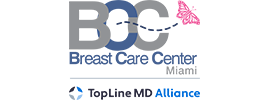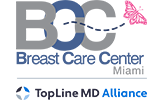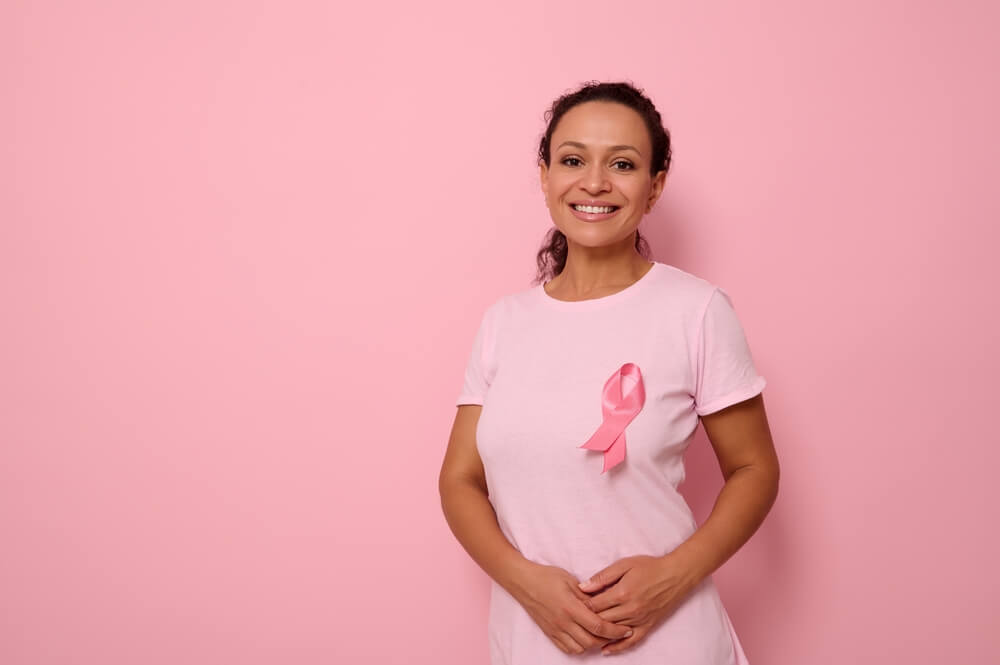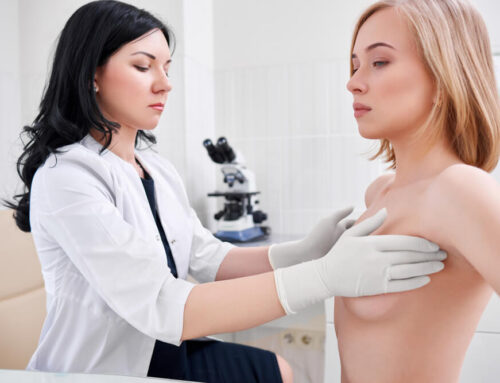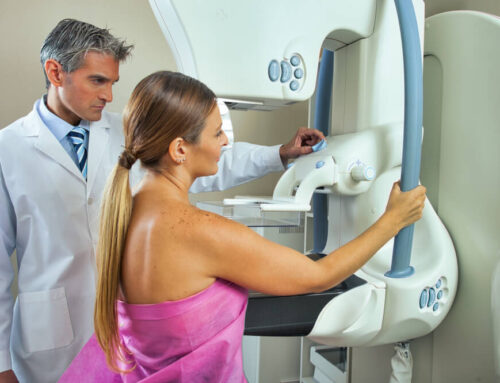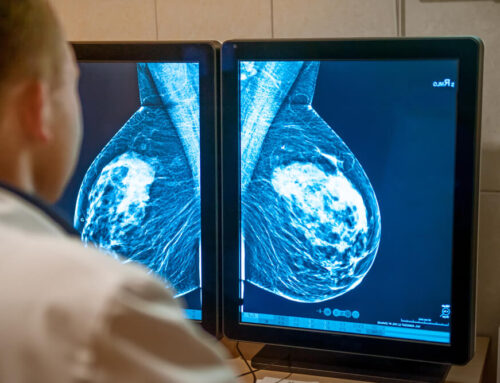One in eight American women may get invasive breast cancer at some point in their lives, making it the most common malignancy in women. Men are not immune to developing breast cancer, either. However, a breast cancer diagnosis in men makes up less than 1% of all cases.
Breast cancer may be caused by oxidative stress in the breast cells or by gene mutations. Other factors, such as obesity and the presence of specific genes (such as BRCA1 and BRCA2), can also increase your risk.
Furthermore, one’s way of life is also critical. A higher risk of developing breast cancer has been linked to factors such as smoking, exposure to estrogen, heavy alcohol consumption, and specific dietary patterns, such as the typical Western diet, characterized by the high consumption of processed foods.
It is important to note that other dietary habits, such as the Mediterranean diet, have been linked to a decreased risk of developing breast cancer. In addition, several foods may offer protection against this illness.
No one can claim that a specific food regime is the perfect anti-breast cancer diet, but breast cancer prevention food is still something to consider. If you have any questions or concerns about your health, don’t hesitate to contact us at Breast Care Center Miami. We can also discuss the potential breast cancer prevention diet enriched with foods that would do you good.
Food for Breast Cancer Prevention
It’s important to remember that there are several risk factors for developing breast cancer. Diet is just one factor among many that can be altered to better one’s health and decrease one’s risk of cancer.
The necessity for frequent mammograms and other examinations for breast cancer remains regardless of how well you eat. After all, survival rates benefit significantly from early diagnosis and treatment. Consult a doctor about the best breast cancer screening options for you.
Despite this, studies show that eating the foods we will proceed to discuss may reduce your risk of developing this illness.
Vegetables
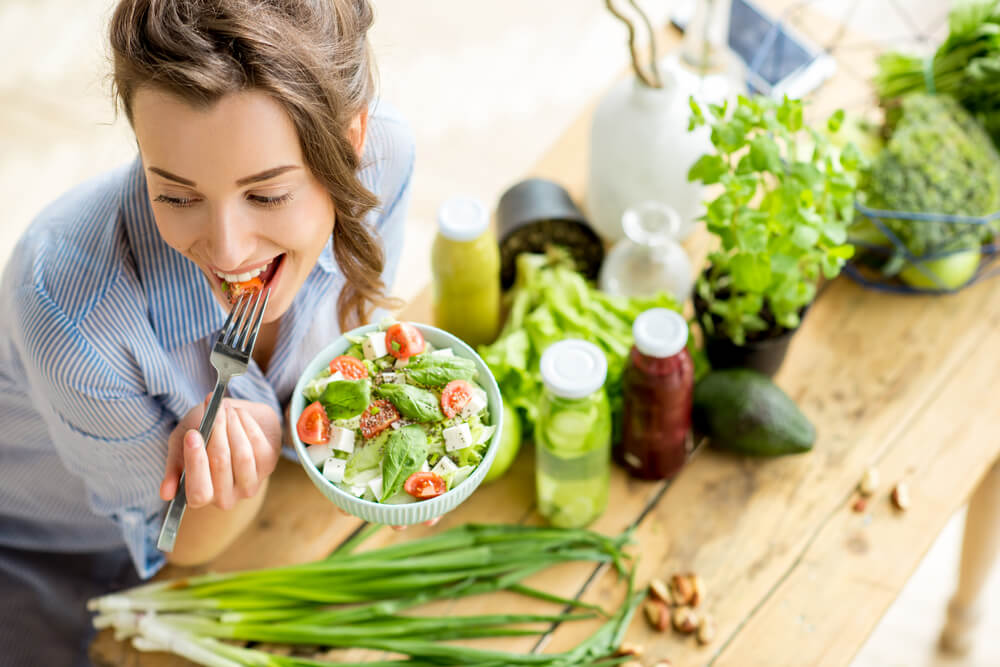
Lutein, beta carotene, and zeaxanthin are three carotenoid antioxidants found in leafy green vegetables, such as spinach and kale. The risk of developing breast cancer is inversely proportional to the amount of these antioxidants in the blood.
In 2012, researchers analyzed data from eight trials involving 7,011 women and discovered that those with greater carotenoid levels had a far lower risk of developing breast cancer.
Cabbage, cauliflower, and broccoli are all examples of cruciferous vegetables which may help reduce the likelihood of developing breast cancer.
The body can break down the glucosinolate chemicals found in cruciferous vegetables into isothiocyanates. They have potentially powerful cancer-fighting properties.
Furthermore, allium vegetables refer to a family of veggies that includes garlic, onions, and leeks. They are rich in several nutrients, including vitamin C, flavonoid antioxidants, and organosulfur compounds. Thanks to the potentially potent cancer-fighting potential, they too can be considered breast cancer prevention food.
Fruits
The flesh and peel of citrus fruits (oranges, lemons, grapefruits, tangerines, and limes) are loaded with chemicals that may prevent breast cancer, such as:
- Vitamin C
- Folate
- Flavonoid antioxidants like naringenin, hesperetin, and quercetin
- Carotenoids like beta-carotene and beta-cryptoxanthin
These nutrients can help prevent cell damage, fight cancer, and reduce inflammation. As such, we can consider them beneficial foods to prevent breast cancer.
Some studies suggest that eating berries regularly can reduce the chance of developing cancer, especially breast cancer. Flavonoids and anthocyanins, two types of antioxidants found in berries, have been demonstrated to prevent cell damage and slow the growth and metastasis of cancer cells.
Also, apples, grapes, peaches, and pears are particularly effective at protecting against breast cancer and are worth including in the breast cancer prevention diet.
Fatty Fish
The health advantages of fatty fish such as sardines, salmon, and mackerel are well-documented. In terms of food for breast cancer prevention, fatty fish provide potential cancer protection thanks to selenium, omega-3 fats, and antioxidants such as astaxanthin.
Fermented Foods
The probiotics and other nutrients found in fermented foods like miso, kimchi, yogurt, and sauerkraut may be valuable elements of the anti-breast cancer diet.
In 2015, 27 studies found that eating dairy products, especially fermented dairy products like kefir and yogurt, was associated with a lower risk of breast cancer in Asian and Western nations.
Scientific investigations in vitro and in vivo have linked the immune-boosting actions of some probiotics to this protective effect.
Speaking of dairy, mentioned fermented products, raw milk, and milk from grass-fed cows are all examples of high-quality dairy products that may offer protection when consumed in moderation. We attribute this to the high amount of healthy fatty acids, fat-soluble vitamins, and conjugated linoleic acid.
However, overeating industrially processed dairy products may increase a person’s risk of developing cancer and other disorders.
Beans
Beans are an excellent source of fiber, protein, and other nutrients. In particular, the high fiber content of these foods has been linked to a reduced risk of breast cancer.
Bean consumption was found to lessen the incidence of breast cancer by up to 20% in a study including 4,706 women.
Spices and Herbs
Interestingly, foods to prevent breast cancer also include herbs and spices. Many plant chemicals found in herbs and spices have shown promise in animal studies for preventing breast cancer, such as polyphenols, fatty acids, and vitamins.
Antioxidants like rosmarinic acid and carvacrol can be found in oregano. In 2017, researchers revealed that these antioxidants have potent anticancer effects against highly aggressive breast cancer cells in test tubes.
The primary active ingredient in turmeric, called curcumin, has shown substantial anticancer effects, as has apigenin, a flavonoid found in abundance in parsley.
It is recommended to consume a wide range of herbs and spices, such as curry spice mixtures, thyme, and ginger, as they all have promising anticancer benefits.
Whole Grains
Fiber, antioxidants, vitamins, and minerals are just some of the many beneficial substances that may be found in abundance in whole grains, including brown rice, quinoa, barley, rye, and wheat. Not to mention that they may have potent anticancer effects.
One study from 2016 even indicated that if women ate seven or more portions of whole grains per week, they could significantly reduce their risk of developing breast cancer.
Walnuts

Alpha-linolenic acid and other heart-healthy fats in walnuts may be abundant, which is a terrific addition to anyone’s diet.
Some studies even suggest that eating walnuts and other nuts can reduce your risk of developing breast cancer.
A 2015 study of 201 participants found that women who ate the most walnuts, almonds, and peanuts per week had a two- to three-fold lower risk of developing breast cancer than women who ate no nuts.
Drinks and Foods to Avoid for Breast Cancer Prevention
Some foods may help prevent breast cancer, while others may actually raise its risk. To that end, you should limit or eliminate the following drinks and foods from your anti-breast cancer diet:
- Alcohol: heavy drinking is associated with a much higher chance of developing breast cancer.
- Fast food: eating fast food daily is associated with an increased risk of developing chronic diseases like obesity, diabetes, heart disease, and breast cancer.
- Fried foods: consuming many fried foods has been linked to a much higher chance of developing breast cancer. According to a study of 620 Iranian women younger than 50, eating fried foods is the single most significant risk factor for developing breast cancer.
- Processed meats: consuming processed meats, such as bacon and sausage, has been linked to a greater likelihood of developing breast cancer. Research published in 2018 found that eating a lot of processed meat raised women’s breast cancer risk by nine percent.
- Added sugar: excessive consumption of added sugar has been linked to an increased risk of breast cancer via promoting inflammation and the production of enzymes involved in cancer growth and metastasis.
- Refined carbs: risk of breast cancer may be elevated in women who eat a diet high in refined carbohydrates, typical of the average Western diet. Instead of eating sweet baked goods and white bread, try eating whole-grain items and vegetables.
Soy in Breast Cancer Prevention Diet?
Many people are concerned that consuming soy foods like edamame, soy milk, and tofu can increase their risk of developing breast cancer, despite several contradicting findings so far.
Consuming large quantities of isoflavones, a component in soy, may raise the chance of developing breast cancer, as suggested by certain in vitro and animal studies. Namely, isoflavones mimic the properties of estrogen.
So, is soy one of the foods to avoid for breast cancer prevention? Human studies have indicated that eating more soy correlates with a reduced risk of breast cancer.
Additionally, soy consumption may enhance outcomes and prevent recurrence in women with breast cancer.
Plant-Based Breast Cancer Prevention Food
Some studies have found an inverse relationship between cancer risk and plant-based diets.
Scientific research has shown that those who choose to eat a plant-based diet, either vegetarian or vegan, have a lower chance of getting and succumbing to cancer.
As it turns out, a meta-analysis of 96 studies suggested that vegans and vegetarians might have a 15 and 8 percent decreased cancer risk, respectively.
Plant-based diets, such as those followed by vegans and vegetarians, may reduce the risk of cancer since they emphasize the consumption of generally healthy foods, including fruits, vegetables, soy, and whole grains.
They also tend to skip processed and overcooked foods, which have been deemed foods to avoid for breast cancer prevention.
Regarding organic food, it’s true that organic foods are produced more sustainably, contain fewer additives (such as pesticides and hormones), and are healthier for you and the planet. However, they are costly and not ideal for everyone. Eating a plant-based diet, whether organic or not, has been proven beneficial in the fight against cancer.
The Right Food for Breast Cancer
Cancer patients frequently experience muscle loss and malnutrition, both of which negatively affect health and outlook.
While there is no definitive proof that a particular diet can prevent or treat cancer, it is undeniable that a healthy diet can help with other aspects of care, including healing, symptom management, and overall quality of life.
Most cancer patients are advised to eat a healthy, balanced diet low in sugar, salt, caffeine, processed foods, and alcohol and high in lean protein, fruits, vegetables, healthy fats, and whole grains.
Reduced muscle atrophy may result from eating enough high-quality protein and calories. Lean meat, fish, chicken, eggs, beans, seeds, nuts, and dairy products are all excellent protein choices.
Cancer and its treatment can cause many unpleasant symptoms, including a loss of appetite, nausea, vomiting, altered taste perception, difficulty swallowing, irregular bowel movements, and constipation.
Could Keto Diet Prove Beneficial for Cancer Prevention?
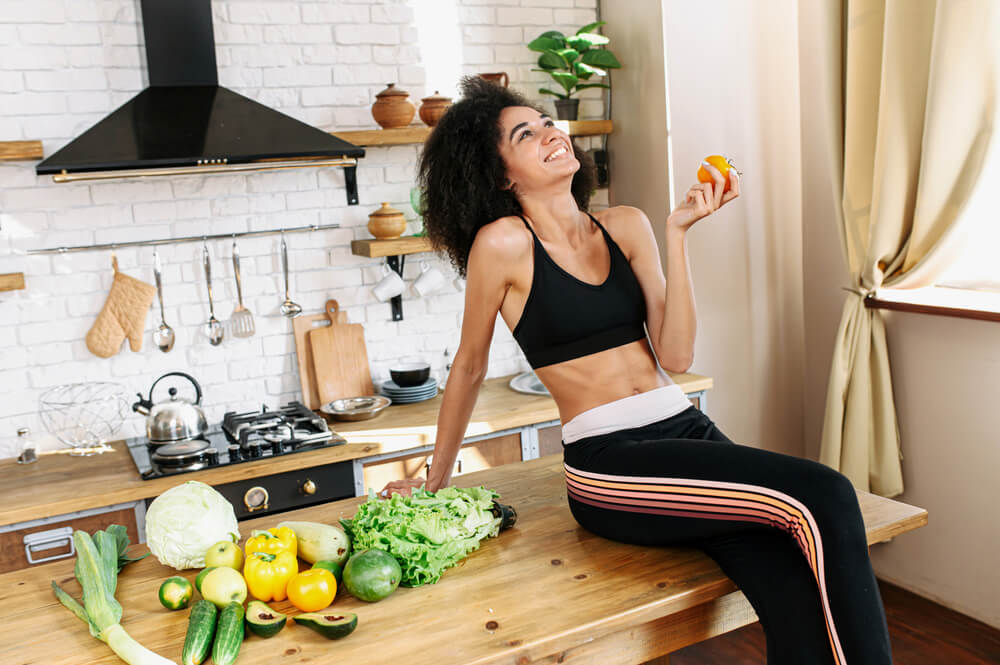
Preliminary human and animal trials on the high-fat and low-carb ketogenic diet show promising results, thus raising hopes that it’s possible to use the keto diet foods to prevent breast cancer and even treat it.
There is a correlation between diabetes and cancer, and both high insulin and blood sugar levels contribute to this risk. The ketogenic diet may starve cancer cells or limit their growth by decreasing glucose and insulin levels.
In fact, both test-tube and animal studies have demonstrated that a keto diet can slow tumor growth and increase survival rates.
One study of 27 cancer patients compared the results of fat-based keto and glucose-based diets over 14 days. Those consuming a glucose-based diet were affected by tumors approximately three times more than those following a keto one. Still, there is insufficient proof to establish a causal link.
A recent evaluation of the use of ketogenic diets in malignancy management concluded that they might help maximize the efficacy of conventional therapies like chemotherapy and radiation.
To date, however, no conclusive clinical studies have demonstrated the benefits of a ketogenic diet for patients with cancer.
Keep in mind that the ketogenic diet is not meant to substitute medical advice.
Lifestyle Factors to Consider
There is convincing evidence that eating a healthy diet can reduce your risk of developing chronic diseases like breast cancer. However, various additional lifestyle factors may also influence cancer risk.
Regular exercise, sufficient rest, and not smoking all significantly reduce the risk of developing breast cancer. Proper weight management might further minimize your risk.
In addition, several studies have found that using particular skin care products can raise the risk of developing breast cancer.
Parabens are a type of preservative known as an endocrine disruptor. This means they may interfere with the body’s natural hormone production and regulation. Parabens, for instance, have been linked to breast cancer and may be found in numerous cosmetics and hair products.
Breast cancer risk may also be increased by exposure to pesticides and other endocrine disruptors contained in plastic materials.
Using all-natural alternatives in areas such as skin care, housekeeping, and gardening, may lower one’s likelihood of developing breast cancer.
To Conclude
The connection between nutrition and cancer risk is complicated but real.
If you want to lower your chance of developing breast cancer, eating a diet full of healthy foods like citrus fruits, leafy green vegetables, and fatty fish may be an excellent place to start. Some evidence suggests that limiting or avoiding alcoholic beverages, sugary foods and drinks, and highly processed meats is just as crucial.
Remember that regular breast cancer checkups and mammograms are essential for spotting and treating the disease early. If you have any concerns about your breast cancer risk, discuss them with a medical practitioner.
Even when you beat cancer, it’s vital to improve your diet and lifestyle, and that way, do everything you can to prevent a recurrence potentially. To further better your confidence and a new chapter in life, you can always count on the best breast surgeon in Miami, Florida. At Breast Care Center Miami, our professional surgeons use cutting-edge equipment and methods to perform surgeries. As we work together as a team, we keep our patients informed and explore all available options.

